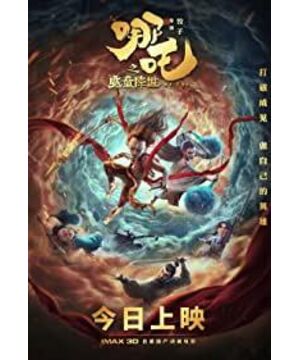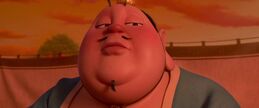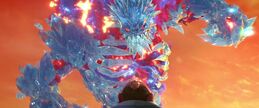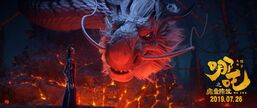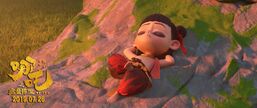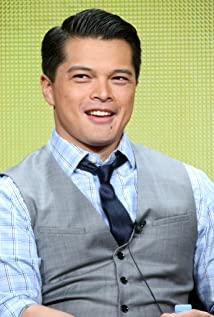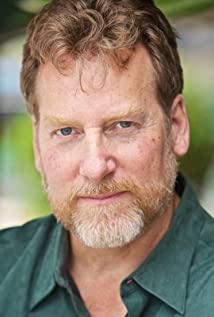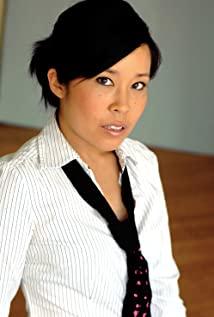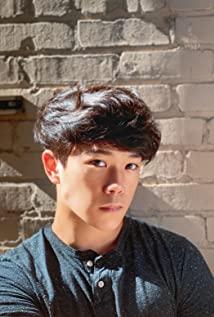First of all, the production level of "Nezha: The Devil Child Comes to the World" is indeed good, and of course it has been proved successful by the audience's reputation in terms of commerciality. These aspects will not be repeated.
Just talk about my views on the film from the creative point of view, including the drama, adaptations, characters, and so on.
Many people think the play of "Magic Boy Comes to the World" is very good. This kind of "good" impression comes from the rhythm or emotion of the play itself. But in my opinion, the script writing of this play is actually quite old-school commercial film practice. What is old school? For example, the New Arts City Film Company, which was the most powerful commercial film maker in Hong Kong in the 1980s, used the so-called "Nine Plays" principle to make scripts. In the past, a film roll of ten minutes was called "one copy", and "nine copies" were 90-minute movies. The method of "Nine Books" is that in each play (10 minutes), it is necessary to calculate whether there are any comedy, spectacle, sensational or sensational things in these 10 minutes. If the commercial elements of each play are sufficient Even if the script of this play is successful, it is worth shooting. In other words, the so-called "nine books" creation is a method of piling up commercial bridges to ensure the density of commercial elements in the drama. However, this creative rule that was once regarded as a golden rule and focused on commercial elements was gradually eliminated.
For me, the play of "Magic Boy Is Coming" is that the elements are too dense. Especially for those comedy segments that many people call "Zhou Xingchi style", the density is even worse. This kind of creative method is of course very effective in ensuring the visibility. It is just like the "nine books" play method was later abandoned. It is also because this type of play puts too much emphasis on commercial elements, but often ignores the characters and easily makes commercial elements. Separate from the drama itself. Just like in "The Devil Child Comes into the World", there are actually many characters responsible for comedy (including the enchantment beast that guards the gate, or the dragon that guards the gate of Yuanshi Tianzun?), these characters are actually well designed and effective as supporting actors. It is also a common method of adjusting rhythm in commercial dramas. However, as one of the main characters, the real Taiyi is still responsible for the production of the "comedy" position. There is no drama to describe his relationship with "Nezha" or his relationship with "Shen Gongbao". It seems very functional.
Especially when you look at the whole movie, you will even complain about "Shen Gongbao". People like "Taiyi Real Man" who sell cute and stupid all the time but can't see any real material are entrusted by Yuanshi Tianzun. It is really impossible to justify. In this way, "Shen Gongbao" is actually rebelling against the destiny! But of course the director has no intention of enriching the character of "Shen Gongbao". His image design has determined that he is just a rigid villain, and the character is still piled up with "comedy" elements in creative thinking, so the role of "Shen Gongbao" is also There is more "stuttering" setting.
Too much emphasis on commercial elements while neglecting the shaping of "characters", of course, also includes the carelessness of character motivation and character integrity. Including many viewers who would complain about Li Jing in the final scene of unexplainably uncovering Ao Bing’s veil, and Ao Bing’s stance was swayed, saying for a while that he wanted to help Nezha, and for a while, determined to destroy Chentangguan, his motive was unusually erratic, etc. In this play, the behavioral logic of these characters is actually all transferred to the creation of commercial fighting and spectacle scenes.
Of course, in this type of script with commercial elements, there are inevitably some routine designs: it is as if the real Taiyi wakes up in the painting, and he does not find that Nezha transforms into Mrs. Yin; or Nezha pretends to be a villager. Children, the design allows them to fall into their own traps. These dramas are designed to create surprises and joy through "reversal." I don't know how others think, but to me, they are all predictable and Old-fashioned, and don't find it interesting. It still works in business, of course, there is nothing to say.
Let's talk about "adaptation." I think that an excellent adaptation must be bold and rebellious. It can not only convey a powerful spiritual core, but also express a rich human nature. Just like the adaptation of "Journey to the West" from "Journey to the West" at the time, it seemed quite aberrant. It wrote the stereotypical animal Monkey King about human desires. The spiritual core is actually about "people" and "emotions." This is also it. The reason why it can become a classic; or the 1979 version of "Nezha Nao the Sea", its adaptation makes Ne Zha's image of rebelling against patriarchy more vivid, the whole spiritual core is actually very bold and anti-establishment, full of politics, but in fact it is Echoing the Chinese climate that was briefly unfrozen in 1979, it almost predicted what would happen ten years later. The adaptation of "The Devil Child Comes to the World" is of course not the modified "Nezha Naohai", it is naturally the original Nezha story in the Romance of the Gods. On the surface, it seems that the adaptation of "The Devil Child" is also very bold. It breaks through the old relationship between characters and incorporates themes such as autonomy of destiny and deep affection between father and son. In terms of my personal aesthetic taste, I certainly feel that I am opposed to patriarchy. The theme of "Magic Boy" is much more powerful than the business logic of sensationalism, but aside from these personal aesthetic judgments, what I want to ask is, the adaptation of "Magic Boy" is really rebellious. , Are you really bold?
First of all, in terms of characters, some people say that Nezha in "The Devil Child Comes into the World" is also quite rebellious, and it is no weaker than the image of Nezha in "Nezha Naohai". I want to ask, what is he resisting? In the play, his fate is due to Shen Gongbao's stigma, but Shen Gongbao as the only villain is not his object of resistance, his object of resistance is the destiny. But the fate in this drama is illusory, with neither a role nor a trace, like a natural disaster like fatalism. In fact, this kind of theme of resisting destiny has been seen a lot in martial arts novels, and it is not new at all, but in those martial arts novels, the so-called "Magic" protagonists who want to resist are also very concrete: no matter what It is the prejudice of the world, or the hypocrisy and threat of decent people. And Nezha’s destiny of rebellion is completely nihilistic to me, and I can’t feel it at all. I don’t know whether it is due to the limitation of the censorship context or the preference of the creator. It often happens in Chinese movies that I don’t know who to resist. I don't know why the situation of resistance, in the end, it was a sentence of "God's Will" that explained everything, and then used it to sensationalize and create the so-called "burn". For me, that kind of emotion is particularly hollow. I neither understand his rebelliousness, nor do I know what the "burning" is what everyone is talking about. Is this kind of "burning" just a lack of objects, big Is it touched by the self that says "My fate is my destiny"?
Secondly, in terms of the adaptation of the relationship between the characters, I also feel that the adaptation of "The Devil's Birth" may seem rebellious, but it is actually very safe and secure. Including the shaping and sensationalization of the father-son relationship, it is very mainstream and warm, which is in line with the operation of commercial films; the relationship between Nezha and Ao Bing has changed from hostility to friendship, and the same is true. Regarding the relationship between the two of them, whether they have a CP or Ao Bing’s image refers to the characteristics of Xianxia, they are all considerations and calculations based on popular elements in the business, and they are all methods of "catering" to the mainstream.
Of course, "Catering" is not a problem, not only is it not a problem, "Catering" should be the bounden duty of commercial films. There are different types of movies, and there is no right or wrong in the adaptation, but there must be a difference in art. Just like in "Journey to the West" and "The Romance of the Gods", why the two stories, "Naos in Heaven" and "Nezha Naos in the Sea" can withstand the test of time, spread and influence so much, it is because the characters themselves are rebellious and rebellious Authority and the attitude and spiritual core that do not cater to mainstream morality.
Having said so much, I actually don’t mean to criticize this movie. On the contrary, I think it’s serious production, rich in commercial elements, and it is a successful product. It’s just that when someone praises this movie at an artistic level, I There will be reservations, and of course they will not agree. A "good-looking" movie does not mean that its artistic level is high. This is naturally two different things.
Precisely because "Magic Boy Comes into the World" can actually represent the highest level of Chinese animation movies at the time, so I think it is not an exaggeration to be harsh on it. How to go a step further from the creative perspective is not only to cater to the mainstream; or to be truly original in the character design (the character design of "Magic Boy" is obviously influenced by many Japanese comics and American animation. The above is not unified), I think Chinese animation actually has a longer way to go.
Don't be too complacent. Don't feel "burnt" at every turn. It's not a bad thing anyway.
View more about Ne Zha reviews


